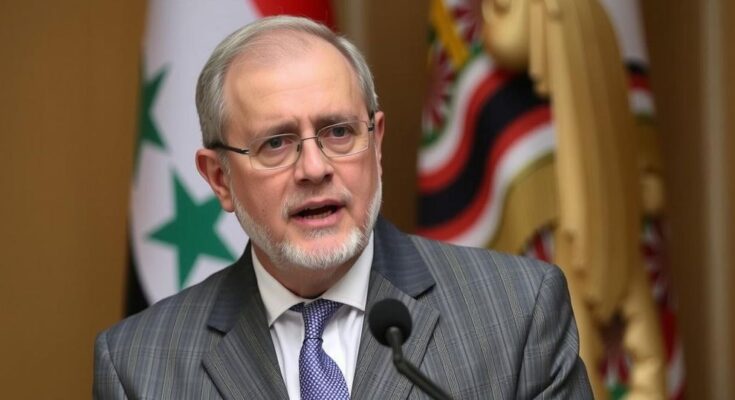Ahmed al-Sharaa, Syria’s new leader, estimates that organizing elections could take up to four years and drafting a new constitution might require three years. His comments follow the ousting of President Bashar al-Assad and indicate efforts to reassure neighbors and the international community about a democratic transition. Sharaa also emphasizes the dissolution of his group, Hayat Tahrir al-Sham, and hopes for improved relations with the United States under the incoming administration.
In a recent interview, Ahmed al-Sharaa, the new leader of Syria, indicated that it could take up to four years to organize elections and an additional three years to draft a new constitution following the ousting of President Bashar al-Assad. This marks the first public commentary on the electoral framework since al-Assad’s removal. Sharaa emphasized that a significant transformation in governance could be visible within a year, reflecting the intentions of the new administration in Damascus to reassure neighboring countries and the international community about its commitment to a more democratic governance structure.
Sharaa, who leads the Hayat Tahrir al-Sham (HTS) group responsible for al-Assad’s ousting, asserted that the HTS would be dissolved during a national dialogue conference, distancing the group from its past affiliations with extremist organizations. He affirmed that the new leadership possesses a dedication to protecting minority groups and preventing sectarian discord. Sharaa expressed the group’s strategic interests in maintaining relations with Russia, a key ally during the civil conflict, reiterating the need for collaborative agendas. Additionally, he expressed hope that the incoming U.S. administration would reconsider sanctions against Syria encouraging a pragmatic approach towards the new leadership.
The recent political shift in Syria, marked by the removal of President Bashar al-Assad, has opened discussions regarding the country’s future governance. Ahmed al-Sharaa’s leadership of the Hayat Tahrir al-Sham, a previously militant group now seeking to rebrand itself as moderate, indicates potential changes in Syria’s political landscape, particularly in the context of foreign relations with major powers like Russia and the United States. The timeline suggested by Sharaa for elections and constitutional changes reflects the complexities of transitioning from decades of an authoritarian regime to a potentially democratic system in a multi-ethnic society. The announcement brings forth significant implications, including concerns over the group’s historical ties to extremist factions and the secular versus Islamist governance debate. As HTS seeks to position itself as a reunifying political entity, the international community remains watchful of its actions and commitments to safeguarding minority rights and preventing sectarian violence, especially in an environment plagued by a history of conflict and division.
In conclusion, Ahmed al-Sharaa’s comments illuminate the ambitious roadmap for Syria’s electoral and constitutional evolution following the fall of Bashar al-Assad. The outlined timelines emphasize a gradual transition towards stability while acknowledging the challenges of establishing a diverse and inclusive governance structure. Furthermore, the shifting dynamics of foreign relations, particularly with Russia and the upcoming U.S. administration, will significantly influence Syria’s political landscape. The need for clarity on HTS’s governance intentions and actions remains paramount as the nation moves toward a new chapter.
Original Source: www.france24.com




